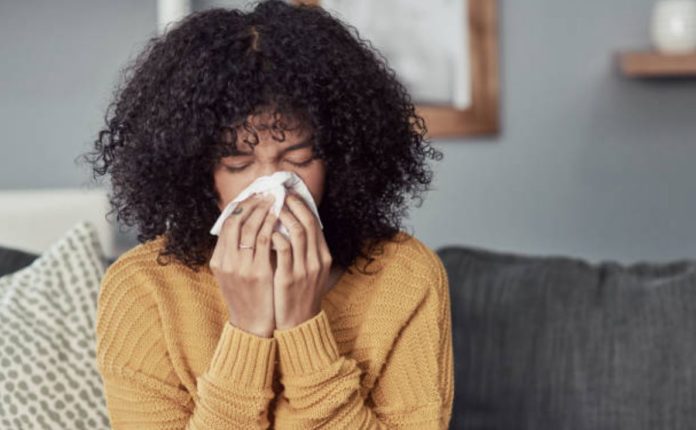Allergy sufferers are all too aware of how spring season can be the beginning to sore, inflamed, itchy, and watery eyes during the pandemic.
Nearly 19.2 million American adults in the US each year have an allergic reaction to pollen, but what can be done about it?
Spring season is notorious for tree pollen, with the numbers continuing to rise until June – and different types of allergens can pollute the air until September. Whether you’re allergic to tree, grass or weed pollen, we are here to help you all.
- Does This Mean We Stopped Being Animal and Started Being Human Due to ‘Copy Paste’ Errors?
- The One Lifestyle Choice That Could Reduce Your Heart Disease Risk By More Than 22%
- Aging: This Is What Happens Inside Your Body Right After Exercise
- Immune-Boosting Drink that Mimics Fasting to Reduce Fat – Scientists ‘Were Surprised’ By New Findings
- Gun Violence in America: What They Don’t Talk About at the Debate
Similarities and Differences between Covid 19 and Allergies
According to Dr. Arfa Faiz, an allergist with Sutter Medical Group: “So the most common allergies I’ve been seeing are tree pollen and grass pollen allergies. And because of the seasons — or lack of in the Central Valley — the season tends to be longer”.
“It’s hard to predict whether the season will be good or bad,” she said. “The amount of pollen is not entirely predictive of the severity or the likelihood of symptoms.”
“Runny nose, stuffy nose, postnasal drip, sneezing, itching, I would think more allergies,” Dr. Faiz explained.
“If there were other symptoms like fever and feeling tired, fatigue, a cough that’s unrelenting, I would think more along the lines of COVID.”
An another specialist Dr. Jason K. Lee from Toronto Allergy and Asthma Clinic said that “There’s more nasal symptoms, runny nose, congestion, chains of sneezing [associated with allergies]…with COVID-19, as it’s an infection, fever and what we call constitutional symptoms of chills, muscle aches — those are more likely to point to COVID-19.”
“If you have allergies and you get COVID-19 it’s more likely that you’re going to aerosolize it by sneezing – so it’s very important to control your symptoms” Lee warned, noting that if you leave allergies untreated it can pre-dispose you to getting infections in general.
Prevention
A study, published in The Journal of Allergy and Clinical Immunology: In Practice, shows that wearing face mask could do more than just protecting you from COVID-19.
To do their research, they gathered data from 215 nurses using surgical or N95 masks during a two-week period and found that among the 44 nurses who suffered from the most severe type of allergies, about 40% reported less sneezing and runny and stuffy noses while wearing masks.
Among the 91 nurses with moderate symptoms, 30% improved when they wore a surgical mask and 40% saw improvement when wearing an N95. Among the 80 nurses with mild symptoms, about 54% saw improvement while wearing a surgical or N95 mask, the study found.
According to researchers, cloth masks can be effective, too, especially since some pollen is substantially larger than the coronavirus.
- Does This Mean We Stopped Being Animal and Started Being Human Due to ‘Copy Paste’ Errors?
- The One Lifestyle Choice That Could Reduce Your Heart Disease Risk By More Than 22%
- Aging: This Is What Happens Inside Your Body Right After Exercise
- Immune-Boosting Drink that Mimics Fasting to Reduce Fat – Scientists ‘Were Surprised’ By New Findings
- Gun Violence in America: What They Don’t Talk About at the Debate
“With the masking, patients did notice that their symptoms of allergies were better controlled. So I would guess that this year the symptoms would be better controlled with the masking,” recommended Dr. Faiz.
